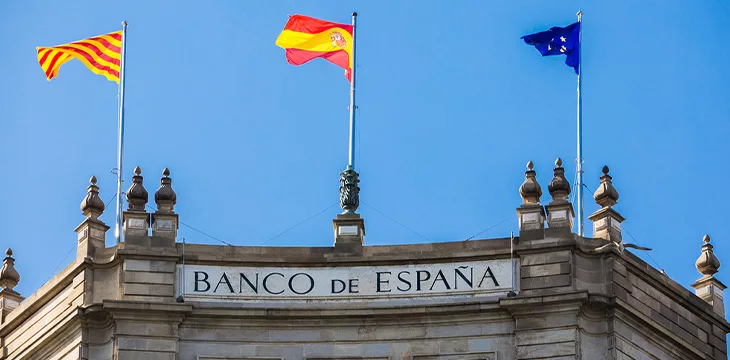|
Getting your Trinity Audio player ready...
|
Spain’s central bank has confirmed its support for a digital iteration of the euro, pointing to its potential to improve electronic payments across the European Union.
The banking regulator made its stance known in a statement summarizing the benefits of the digital euro about the dwindling use of physical cash in the region. In the report, Juan Ayuso, the bank’s General Director of Operation, remarked that the digital euro will not only improve the state of payments but will ensure the independence of the European financial system.
In its operation, Ayuso stated that the proposed central bank digital currency (CBDC) will operate like cash, pledging that it will be widely acceptable by merchants throughout the EU. He quashed claims that the digital euro will face a rough patch, gaining acceptance because it will provide several key functionalities.
“Therefore, guaranteeing access to money issued by the central bank in the digital environment, while preserving these basic characteristics of cash, would contribute to maintaining that confidence in the currency in the new environment,” read the statement.
The central bank executive pointed to the digital euro’s privacy features as an upside for consumers, noting that “only users can see their payment information.” The Eurosystem will be in charge of processing payments but will not have the details of both transacting parties.
Ayuso disclosed that the European Central Bank (ECB) is throwing its weight behind developing offline functionalities for the digital euro. Still, in its early stages, the offline functionality has been touted to increase financial inclusivity in the region in places without internet or electricity.
“The offline mode would offer a backup solution in the event of network outages and would allow digital payments to be brought to geographic areas where they are currently not an option,” said the statement.
Research into the development of the ECB is reaching the two-year mark, punctuated by a series of public consultations and proof-of-concepts (PoCs). In mid-October, the ECB agreed with member states to “undertake all preparations to be in a position to issue a digital euro.”
However, a decision to issue a digital euro has yet to be made, but banking regulators across the region are bracing themselves for a potential 2026 launch date.
Commercial banks angling for a greater role
Commercial banks across the EU are pining for a central role in developing and issuing a digital euro to avoid major disruptions to the payment landscape.
In March, the Association of German Banks penned a letter to the ECB urging it to rope in commercial banks as part of its plans. The banks argue that they can leverage their existing customer relationships to ensure seamless integration of CBDCs into mainstream use.
“Based on today’s business relationships, commercial banks know best what their customers need from digital money – and this applies to both consumers, as well as the companies banks are doing business with,” read the letter.
To learn more about central bank digital currencies and some of the design decisions that need to be considered when creating and launching it, read nChain’s CBDC playbook.
Watch: BSV On-chain Ecosystem Development in Europe

 07-09-2025
07-09-2025 





